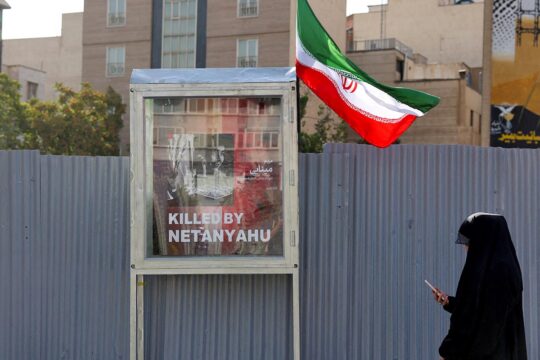Nobel Peace laureate Denis Mukwege said Thursday that anyone denying crimes against humanity and genocide had been committed in DR Congo were acting "in bad faith" as he lobbied for an international criminal tribunal into rights abuses in his country.
The renowned gynaecologist and surgeon received death threats earlier this year after campaigning for the end of impunity for rapes and killings during the two Congo Wars, between 1996-98 and 1998-2003, and the subsequent bloodshed that still afflicts the country's east.
But the threats have not stopped Mukwege, who shared the 2018 Nobel Peace Prize for his work against sexual violence in war.
He spoke to AFP in a rare interview on Thursday to mark the 10th anniversary of a United Nations "mapping" report that outlined "the most serious human rights violations" surrounding the two wars but has been widely ignored.
"To deny that there have crimes against humanity and war crimes in the Democratic Republic of Congo -- even to deny there has been genocide in DRC -- is to be in bad faith," Mukwege said during a teleconference from his Panzi Hospital.
He has treated thousands of rape victims at the hospital in South Kivu province's capital Bukavu, and he found time between two operations on Thursday to reiterate the report's message.
"This report mapped the crimes that have been committed in the Democratic Republic of Congo," said Mukwege.
It "proposed an international criminal court for DR Congo or a specialised mixed court with Congolese and international judges," he added.
- Death threats -
In late July the doctor and his family received death threats when he spoke out about a massacre a few days earlier in the South Kivu village of Kipupu.
"The Kipupu affair was just a pretext. The core issue is the mapping report. I have been threatened for a very long time," he said Thursday.
"There are still executioners in the army and police who continue to intimidate victims, who are forced to stay silent."
There was a protest in Bukavu on Thursday against perpetrators' long-standing impunity over the violence, but Mukwege did not attend, likely due to security concerns.
His campaign received support from Amnesty International and Human Rights Watch on Thursday.
"Congolese authorities and the UN have not done enough to hold human rights violators to account and deliver justice to victims a decade after the landmark United Nations Congo Mapping Exercise Report was published in October 2010," the NGOs said in a joint statement.
- 'Answer for their actions' -
Though it claims fewer lives than two decades ago, militia violence continues to plague eastern DR Congo.
More than 1,300 people were killed in the first six months of 2020 in the three eastern provinces of Ituri and North and South Kivu, according to a tally compiled by UN sources.
Mukwege said he regretted that former militia fighters had been integrated into the country's regular armed forces during programmes aimed at demobilising armed groups.
"Promotions were given to those who should answer for their actions before national or international justice," he told AFP.
It is an issue of national debate as President Felix Tshisekedi reaches out to numerous armed groups operating in the east.
Some have responded to his call for peace by presenting demands, mostly for amnesty and further integration of their fighters into the armed forces.
The UN report also denounced the involvement of neighbouring Rwanda and Uganda in the two Congo Wars, which Mukwege said claimed "millions of lives".
Rwanda has strongly rejected the report's findings.
"We cannot start from a contested draft report like this one to launch an international criminal tribunal," Rwandan Foreign Minister Vincent Biruta told weekly Jeune Afrique on Wednesday.
However Mukwege said that "if they think this report is badly made, they should accept an independent jurisdiction".
"If they are accused, they can come up with arguments to exonerate themselves," he added.
Tshisekedi has sought closer ties with Rwanda since his election last year, and the government was muted in marking the report's anniversary although a minister attended a demonstration in the capital Kinshasa.
Another protest was banned and dispersed in the city of Kisangani, which has come to symbolise the country's violent past after Ugandan and Rwandan troops fought there in June 2000.


